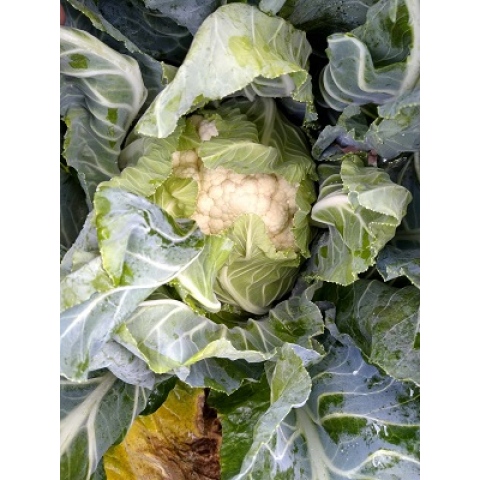Selected categories:
- Agriculture, hunting and related service activities
Vegetables, vegetable cultivation
Agro Małek Marta Małek
26-807 Radzanów
mazowieckie, Poland
Agrosar Sp. z o.o.
32-125 Wawrzeńczyce
małopolskie, Poland
AH SADPOL s.c.
26-415 Klwów
mazowieckie, Poland
ARIVE Sp. z o.o.
50-518 Wrocław
dolnośląskie, Poland
Aspergis Sp. z o.o.
49-340 Lewin Brzeski
opolskie, Poland
Bakor International Sp. z o.o.
96-100 Skierniewice
łódzkie, Poland
DUTCH FARMERS Sp. z o.o.
73-102 Stargard
zachodniopomorskie, Poland
FASOLEX S. JASIAK i S-ka Sp.J.
28-136 Nowy Korczyn
świętokrzyskie, Poland
Grupa Producentów Rozsad Krasoń
97-340 Rozprza
łódzkie, Poland
Help needed ?
If you have not found the desired product, company, service or the searching results are not satisfactory for you, do not hesitate to contact us and tell what you are looking for or what you need. We will send your inquiry directly to the interested companies.
Write to us
See also industries
Did you know that:
Vegetable production in Poland is one of the key sectors of agriculture, closely linked to the country's food economy and export activities. Poland benefits from favorable climatic conditions and fertile soils that support the cultivation of a wide range of vegetables—both field-grown and greenhouse-grown. As a result, the country is one of the leading vegetable producers in Central and Eastern Europe.
The Most Important Vegetables Grown in Poland:
-
Potatoes – A staple product of Polish agriculture, used both as a table vegetable and as raw material for processing. Poland is one of the largest potato producers in the EU.
-
Carrots – Popular in both Polish and international cuisine, primarily grown for the fresh market and for processing (e.g., juices, frozen products).
-
Cabbage – Traditionally grown varieties in Poland include white cabbage, red cabbage, and savoy cabbage. Cabbage is the base of many traditional dishes such as bigos and sauerkraut.
-
Onions – A key seasoning vegetable, cultivated both in open fields and in greenhouses. Polish onions enjoy a strong reputation on both domestic and foreign markets.
-
Beets – Mainly grown for the fresh market and for processing (e.g., beetroot, juices).
-
Cauliflower and Broccoli – Cruciferous vegetables with significant dietary importance, grown mainly for the fresh market. Poland is expanding their cultivation areas, especially in the summer and autumn seasons.
-
Cucumbers – Cultivated both in open fields and greenhouses. Field cucumbers are a base product for pickles and preserves.
-
Tomatoes – Grown both in fields and in greenhouses. Greenhouse tomatoes enable year-round production and provide high-quality produce.
-
Peppers – An increasingly popular vegetable, mainly grown in greenhouses. Polish peppers are gaining recognition for their intense flavor and freshness.
-
Beans and Peas – Grown for seeds and the fresh market, important legumes due to their protein content.
-
Parsley (root and leaves) – A valued seasoning and vegetable used in cooking. Poland is a major producer of parsley for both domestic and export markets.
-
Spinach, Lettuce, Radish, Leek – Leafy and root vegetables often grown in the spring and autumn seasons, popular in the fresh market.
-
Zucchini, Pumpkin, Dill, Horseradish, Eggplant, Garlic, Asparagus – Vegetables grown on smaller areas, but gaining importance, especially in specialized and organic production.
Market Characteristics
In Poland, vegetables are cultivated across diverse types of farms—from large enterprises focused on industrial-scale production, to family farms and modern greenhouse plantations. The share of greenhouse vegetables is increasing each year, enabling year-round supply and improved quality control.
A significant trend is the growth of organic production, driven by consumer demand for healthy and natural foods. More and more farms are adopting environmentally friendly cultivation methods, reflected in the growing export of organic vegetables.
Vegetable export is a key development direction for Poland. The main recipients are EU countries, where Polish vegetables are valued for their quality and competitive prices. However, producers must also face competition from other countries as well as meet certification and sanitary requirements.
Challenges and Prospects
Vegetable production in Poland faces several challenges, including climate change affecting growing conditions, pressure to improve efficiency and quality, and shifting consumer preferences. Modern technologies, automation, and greenhouse development are key factors that can support the further growth of the sector.
In conclusion, the vegetable cultivation and production market in Poland is dynamic, diverse, and continuously evolving, combining traditional methods with modern approaches. Poland has the potential to maintain its position as a significant player in the European market and to effectively respond to changing consumer demands.

 pl
pl  en
en  de
de  es
es  fr
fr  it
it  pt
pt  ru
ru  sv
sv 












